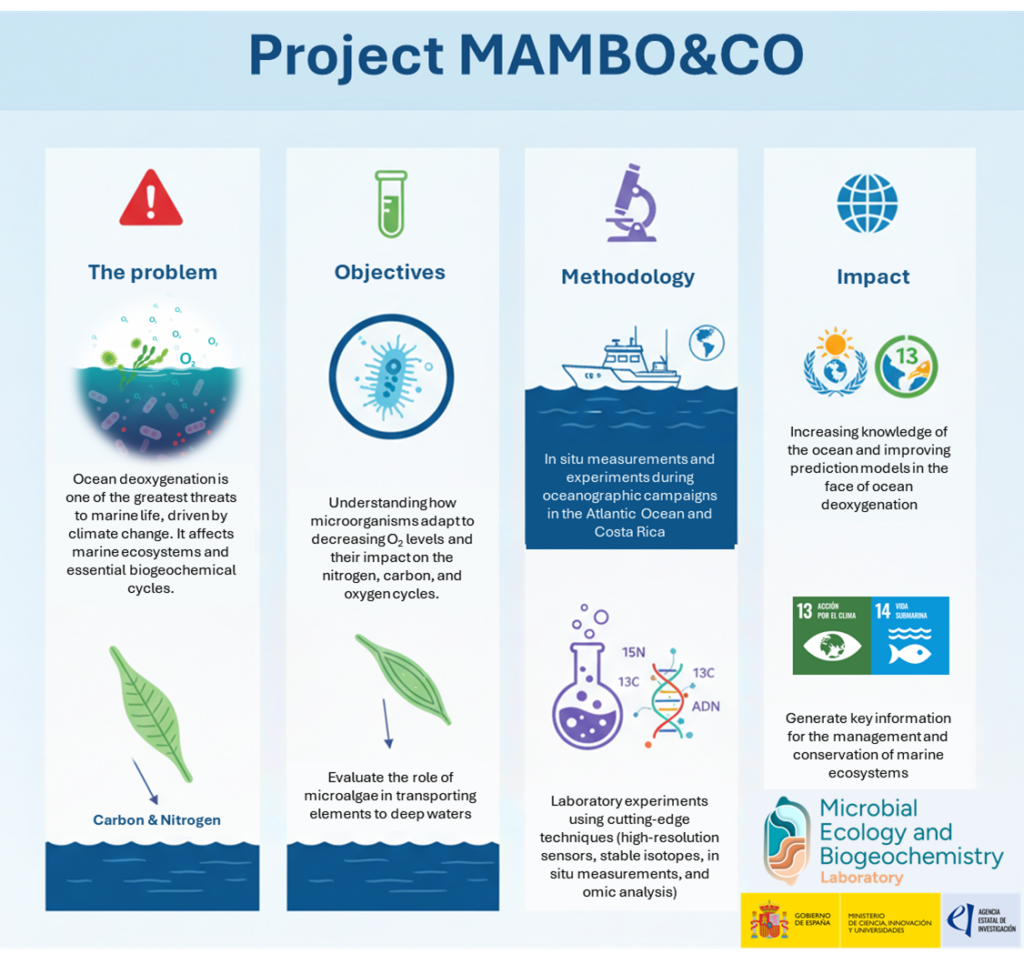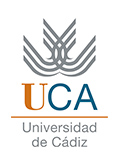Unravelling Microbial Metabolism in Deoxygenated Oceans
What is MAMBO&CO?
MAMBO&CO, an acronym for Microbial Metabolism in the Boundary of Oxic-anoxic conditions: interplay of Carbon, Oxygen and nitrogen cycles, is a research project seeking to understand how microbial and phytoplankton communities adapt to decreasing oxygen levels in the oceans. The goal is to provide essential information for understanding oceanic deoxygenation and predicting environmental responses to climate change.

The Problem: Oceanic Deoxygenation
Deoxygenation is one of the most critical changes affecting marine ecosystems. Oxygen levels are declining in both coastal areas and the open ocean, and Oxygen Minimum Zones (OMZs) have expanded drastically. Although these zones represent less than 1% of the global ocean, they have a major impact on biogeochemical cycles, contributing to the loss of 30-50% of the ocean’s nitrogen.
Project Objectives
The MAMBO&CO project focuses on evaluating the influence of oxygen concentration and variation on the responses of the planktonic community, characterizing metabolic adaptations in marine ecosystems with permanent and temporary exposure to hypoxic and anoxic conditions.
Specific objectives include:
- Understanding Microbial Metabolic Response: Determining the contribution of aerobic respiration and other processes to the oxygen cycle. The project will investigate the coexistence of mcirobial metabolisms and their importance in the use of O₂, N, and C within OMZs.
- Assessing the Role of phytoplanktonic community: Investigating how diatoms (a type of phytoplankton) influence the nitrogen cycle in OMZs and the elemental fluxes to deep waters.
Methodology and Innovation
MAMBO&CO addresses the lack of knowledge regarding the transition from aerobic to anaerobic metabolism under low-oxygen conditions. To do this, the project will use state-of-the-art techniques, including:
- High-Resolution Sensors: Using high sensitivity oxygen sensors and other techniques based on mass chromatography.
- Stable Isotopes: Isotopic labeling with ¹⁵N and ¹³C to track nitrogen and carbon cycles.
- Genomic Analysis: Metagenomic sequencing to characterize microbial communities and their functional potential.
- Scientific Expeditions: Oceanographic campaigns will be conducted in the North Tropical Atlantic Oxygen Minimum Zone and in Golfo Dulce, Costa Rica, ecosystems with different levels of deoxygenation.
Contribution and Relevance
The project’s results will contribute to improving predictive models on the effects of marine deoxygenation on the interplay of the nitrogen, carbon, and oxygen biogeochemical cycles at local and global scales.
The project directly aligns with the UN Sustainable Development Goals (SDGs) 13 (Climate Action) and 14 (Life Below Water).
Participants
Dr. Emilio Garcia Robledo (I.P.)
Dr. Alfonso Corzo Rodriguez



